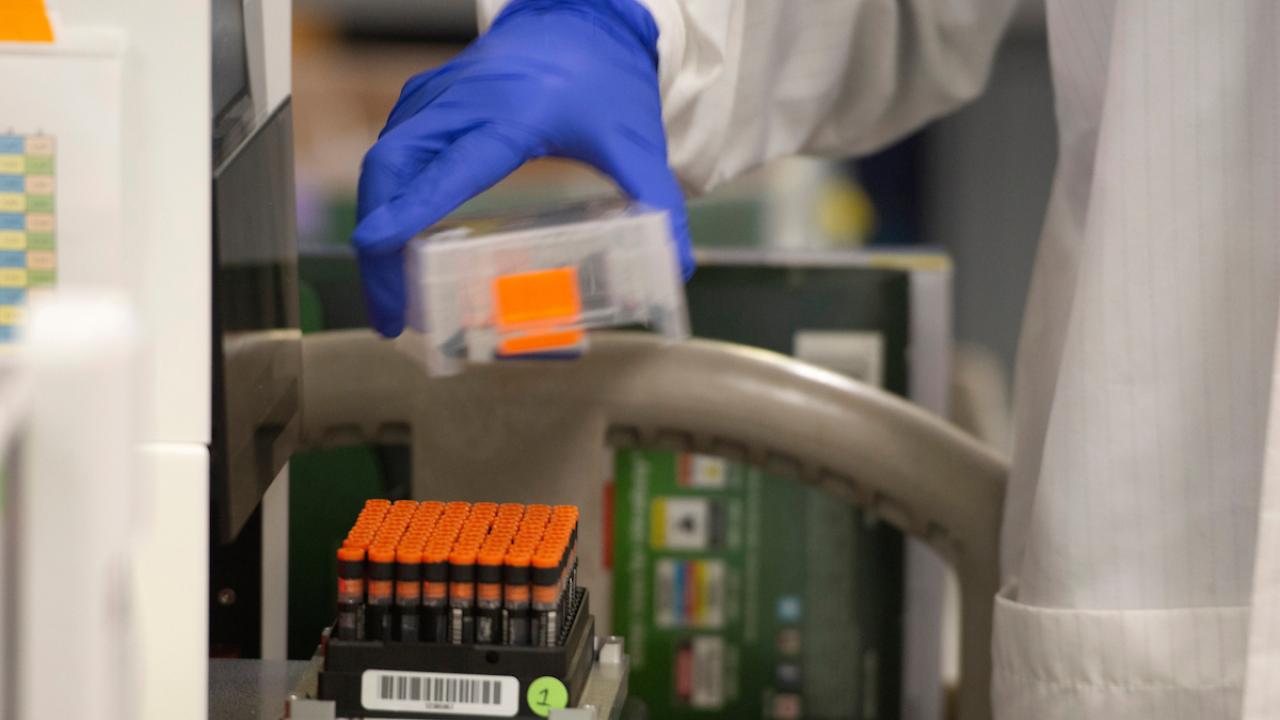News release from Healthy Davis Together, issued today (April 6).
Through genotyping all positive samples as part of Healthy Davis Together’s free community COVID-19 test operations, the UC Davis Genome Center has identified the first known case of the B.1.351 variant of the virus SARS-CoV-2 in Yolo County.
Research performed elsewhere has found that the B.1.351 variant is more contagious, with a 50 percent higher transmission rate. While large-scale population-based studies have not provided strong evidence that the effectiveness of the three vaccines authorized for emergency use in the United States is negatively impacted by variants such as B.1.351, there is laboratory evidence that suggests efficacy may be impacted.
This is the second COVID-19 variant of concern scientists at the Genome Center have identified as part of Healthy Davis Together testing protocols. The B.1.1.7 variant was identified and confirmed in early February.
“The detection of the B.1.351 variant is concerning given its high transmissibility and studies in the lab that show that vaccines may not work as well against this variant,” said Aimee Sisson, Yolo County public health officer. “Even if real-world studies eventually show that vaccines are effective against the B.1.351 variant, the majority of Yolo County residents are not yet fully vaccinated. Until most of the population has immunity, we need everyone to continue taking protective measures against coronavirus. Masking, distancing, avoiding large gatherings and regular testing are as important as ever.”
Isolation, contact tracing underway
The person who had a positive Genome Center PCR test result for the B.1.351 variant is under isolation, and contact-tracing efforts began immediately because they may have a SARS-CoV-2 infection with this variant. This individual is an adult who lives in Davis and has not been vaccinated for COVID-19. The B.1.351 variant, estimated to have emerged in South Africa in October, has now been detected in 33 states. California has reported 10 cases of B.1.351.
“Our genotyping protocol is working as intended,” said Richard Michelmore, director of the UC Davis Genome Center. “All samples identified as positive for SARS-CoV-2 by the testing lab are now genotyped immediately to identify all currently known variants of concern. Samples that have genotypes different from the common strain are sequenced to confirm the genotyping.
“If there is a known variant of concern in our testing pool, we’ll find it and alert the community as quickly as possible to try to prevent spread.”
Continue to follow guidance
The widespread prevalence of the virus means that evolution of new strains is inevitable. Therefore, more than ever, people must continue to follow guidance to prevent the spread of COVID-19 and all its variants, including:
- Wear a mask/face covering; make sure it fits properly
- Keep physical distance; at least 6 feet apart and more if possible
- Practice good hand hygiene
- Get tested at least weekly for COVID-19, even if you are asymptomatic
- Avoid crowds
- Do activities outdoors whenever possible
- Stay home if you feel sick
- Get vaccinated when it is available to you
How the variant was detected
The test used to genotype virus samples is being done on the same instrument that Healthy Davis Together uses to test saliva samples for SARS-CoV-2. The IntelliQube PCR System, which was designed as a genotyping instrument by LGC Biosearch Technologies, permits rapid genotyping of all positive samples. All positive samples are now routinely tested for more than seven diagnostic single nucleotide polymorphisms. The first week of use revealed a virus sample with the N501Y substitution and 69/70 deletion, two of the mutations associated with B.1.1.7. Recently, another sample was detected with N501Y and E484K substitutions but not the 69/70 deletion; this combination is diagnostic of B.1.351. Whole genome sequencing of the sample was done in the laboratory of UC Davis Professor John McPherson and confirmed the identity of the variant as B.1.351.
Healthy Davis Together and Yolo County have been collaborating throughout the COVID-19 pandemic on COVID-19 testing, vaccination and education to help reduce the spread. Starting April 15, all Yolo County residents 16 and older will be eligible for a vaccine.
More information
- B.1.351 and other variants of concern (Centers for Disease Control and Prevention)
- Free COVID-19 testing (Healthy Davis Together and Yolo County)
Yolo County vaccine information and assistance is available online, or by calling 211 or 855-866-1783 (toll-free).
Media Resources
Media Contacts:
- Healthy Davis Together, media@healthydavistogether.org
- Melissa Lutz Blouin, UC Davis News and Media Relations, 530-564-2698, mlblouin@ucdavis.edu
Healthy Davis Together is a joint project between UC Davis and the city of Davis to prevent the spread of COVID-19 in our community and facilitate a coordinated and gradual return to regular city activities and student life. Comments and questions are welcome at info@HealthyDavisTogether.org.
Top photo: Charlotte Acharya, a staff research associate, processes a sample tray through the decapping machine at the UC Davis Genome Center’s COVID-19 testing laboratory.
